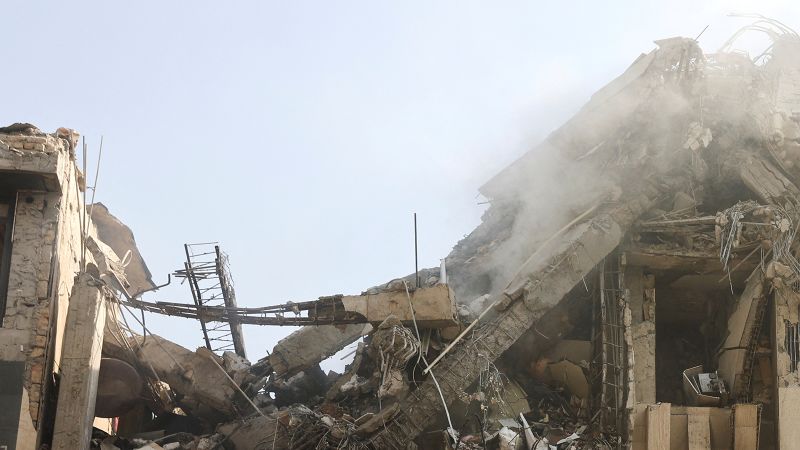Tensions between Israel and Iran reached a boiling point on Friday, leading to a significant surge in oil prices and a sharp decline in U.S. stocks as investors turned to safer assets such as gold.
The price of U.S. oil saw its largest single-day jump in years, climbing by 7.26% to approximately $72.98 per barrel. Meanwhile, Brent crude increased by 7%, closing around $74.23 per barrel, even after earlier peaks of up to 14% and 13%, respectively. These gains mark the highest single-day increases for both oil benchmarks since March 2022, shortly after Russia’s invasion of Ukraine, and the most substantial weekly gains since October 2022.
Ahmad Assiri, a research strategist at Pepperstone, commented, “The surge illustrates both immediate supply concerns and a growing sense that negative headlines could extend the timeline for escalation unlike the prior Israel-Iran episode.”
In contrast, U.S. stocks fell, with gold prices climbing about 1.4% to $3,433 per troy ounce, while the U.S. dollar saw a slight uptick. The Dow Jones Industrial Average experienced a decline of 770 points, or 1.79%, following Iran’s announcement of retaliation measures. The S&P 500 decreased by 1.13%, and the tech-heavy Nasdaq Composite dropped by 1.3%. The S&P 500 had been approaching an all-time high but closed the week down, breaking a two-week winning streak.
Market concerns intensified after reports indicated that Iran had launched “hundreds of various ballistic missiles” towards Israel as a response to attacks that occurred earlier that day. According to Iran’s state news agency IRNA, the missile launches signified the start of a robust retaliation against Israel.
In the aviation sector, airline stocks plummeted. United Airlines fell 4.4%, Delta Air Lines decreased 3.8%, and American Airlines saw a 4.9% drop. European airlines were similarly affected, with Easyjet down 3%, British Airways’ parent company, IAG, dropping 3.7%, and Lufthansa declining by 2.8%. Several cruise line stocks also fell sharply, with Royal Caribbean down 2.9% and Carnival dropping 4.9%. Conversely, defense contractors saw gains, with Lockheed Martin increasing by 3.7% and General Dynamics rising 1.1%.
The tensions escalated after Israel initiated unprecedented strikes on Iran’s nuclear and military sites, reportedly killing key military leaders. Israeli Prime Minister Benjamin Netanyahu stated in a televised address that this “targeted military operation” is expected to continue for “many days,” emphasizing that it will persist “for as many days as it takes to remove this threat.”
A state of emergency was declared in Israel in anticipation of Iranian reprisals, which were implied by Iran’s Supreme Leader Ayatollah Ali Khamenei, who warned that Israel would face “severe punishment” for its actions. U.S. Secretary of State Marco Rubio confirmed that the United States was not involved in Israel’s operations and cautioned Iran against targeting American interests or personnel.
President Donald Trump expressed to The Wall Street Journal that he views Israel’s strikes on Iran positively for the market, asserting that it would prevent Iran from obtaining nuclear weapons. “I think ultimately, it would be great for the market because Iran will not have a nuclear weapon. It will be great for the market — should be the greatest thing ever for the market. Iran won’t have a nuclear weapon that was a great threat to humanity,” he stated.
Market analysts are increasingly worried about potential Iranian retaliatory actions, particularly concerning oil transportation routes. If Iranian oil were to be taken offline, prices could jump by approximately $7.50 per barrel, according to Andy Lipow, president of Lipow Oil Associates. He stated, “Iran knows full well that Trump is focused on lower energy prices and actions by Iran that impact Middle East supply and consequently raise oil prices damage Trump politically.”
The looming threat of further conflict potentially affecting oil transport through the Strait of Hormuz—one of the world’s most critical oil conduits—has raised alarms about oil prices reaching $100 per barrel if disruptions occur.
On Friday, OPEC responded to speculation about emergency oil stockpile releases by insisting that there are “currently no developments in supply or market dynamics that warrant unnecessary measures.” Bob McNally, president of Rapidan Energy Group, reiterated this position, identifying OPEC’s approach as one of caution.
The potential for increased oil prices also poses a risk of reigniting inflation, complicating economic strategies for policymakers like the Federal Reserve. Analysts at Capital Economics suggested that any rise in energy inflation would make central banks approach interest rate cuts more cautiously, while Fed officials prepare for discussions on economic projections next week.
As geopolitical tensions rise, the risk of further disruptions expands, impacting not only Iran but potentially other neighboring oil-producing nations as well, according to market analysts.

